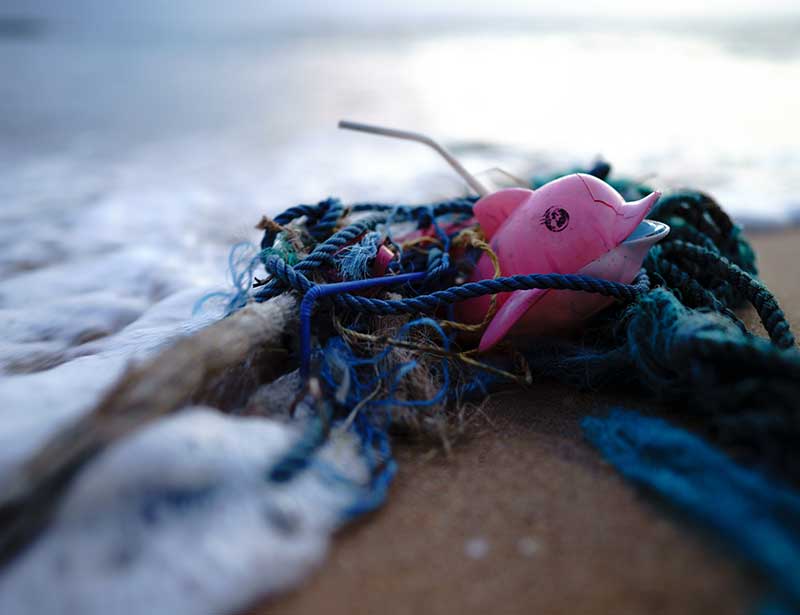New Year's Day: Kick Start the New Year For the Planet
New Year's Day: that universally recognized celebration that decorates our calendars every January 1st. Picture it as a fresh canvas, a new beginning. People worldwide seize this opportunity to outline plans, setting goals they aspire to achieve. It's a time of collective optimism, fueling mutual support.
Beyond the festivities and fireworks, New Year's Day has a deeper essence. This day gifts us a moment as we bid farewell to the previous year and welcome the new. A moment to reflect, absorb the last year's lessons and look ahead with purpose and resolve.
But the magic of New Year's Day isn't confined to individual growth. Picture people across diverse cultures, each donning their unique customs and traditions. So when you think about New Year's Day, remember - it's more than just another date on the calendar. It's a global event celebrating our shared human experience, highlighting the power of unity and mutual support. And it is also a great opportunity to consider how you might help support environmental causes and take some steps towards more sustainable living.
Featured in: January - Awareness Months, Days & Observances.
New Year’s Day History and Background

Julius Caesar, the herald of the Julian calendar, gave birth to the New Year's Day we know today. In 46 B.C., he saw an urgent need for a more precise calendar system to replace the early Roman calendar with its ten months and 304 days.
He pulled together a think-tank of the era's most brilliant astronomers and mathematicians to fix this. Their collective wisdom gave rise to a solar-based calendar marking January 1st as the year's first day. This day was believed to be the birthday of Janus, the Roman God of beginnings and transitions.
Yet, accepting January 1st as New Year's Day was no overnight event. For example, England and its American colonies held off on popping New Year's champagne on January 1st until 1752.
Jump to 1582, and another calendar shift occurs. Pope Gregory XIII introduces the Gregorian calendar. This new system rectified small errors accumulated over centuries in the Julian calendar. Still, it kept January 1st as the year's dawn, rooting this date deeper into history.
As the centuries passed, New Year's Day gathered its unique customs and traditions. Take the iconic Times Square New Year's Eve ball drop. This tradition, established in 1907, has become a globally celebrated event.
Then there's the age-old tradition of New Year's resolutions. This practice, going back to the Babylonians, still holds strong. It's a unique thread that ties us to our distant ancestors. As such, the story of New Year's Day – from its genesis to its current global recognition – is a beautiful narrative of human change, renewal, and optimism.
How to Support Green Causes This New Year

As the New Year rings in, it's time to forge a resolution this holiday season that resonates deeply with our planet's well-being.
How about kicking off with participation in eco-conscious New Year's Day events? You'll find a fantastic flurry of activities in plenty of neighborhoods, such as charity runs, music fests, or perhaps even parades. These aren't just fun—they're an opportunity. You can mingle, exchange innovative ideas, and contribute to environmental causes in a truly festive spirit.
Of course, amidst the celebrations, don't forget the power you hold at your fingertips—social media. It's easy to catch the rhythm of the moment and share riveting facts about our environment. Use popular hashtags, post some selfies from local events, or share a profound nature quote or two.
Volunteering is another hands-on approach to start the year on a green note. Nearby, you'll likely find environmental organizations that could use your help. You could be engaging in tree planting projects one day, cleaning up a beach the next, or even advocating for an environmental policy. Believe me, a certain joy comes from getting your hands dirty for a good cause.
And if you're feeling particularly ambitious, why not take the initiative to set up a fundraiser? It could be a bake sale with the richest, most decadent brownies (whose sales go straight to a green charity), a crowdfunding local renewable energy or other cause, or perhaps a classic yard sale.
Remember, every little bit you contribute helps these organizations keep their heartbeats strong. So, as the New Year’s celebrations die down, are you ready for a greener New Year?
Green New Years Resolutions
New Year's resolutions can be a double-edged sword. For some, these annual intentions serve as a helpful compass, guiding them toward growth and improvement. But for others, they sometimes lead to unnecessary pressure, a sense of failure, or even negative self-perceptions when these ambitions are not met within the expected timeline.
However, there's a beneficial way to approach New Year's resolutions, especially when they're focused on environmental stewardship. Consider these resolutions an ongoing guide throughout the year rather than strictly confined goals to be checked off within 12 months. Sustainable living is a lifestyle change worth adopting over the long run.
Less pressure, more flexibility, and persistent mindfulness can turn these resolutions from daunting tasks into small but significant steps toward a more sustainable world.
16 Eco-Minded New Year’s Resolution Ideas to Consider this New Year's Day

- Vow to reduce personal carbon footprint: This could be achieved by driving less or carpooling, turning off lights when not in use, and curbing excessive heating and air conditioning use.
- Swap to reusable and zero-waste products: Swap out those plastic bags, straws, and cups for more sustainable, reusable ones.
- Shop for local food: Support local businesses and farmers' markets. This reduces the carbon footprint of transporting goods over long distances.
- Start a compost: Compost food scraps, and create a compost pile in your backyard to turn organic waste into nutrient-rich soil.
- Use water wisely: Reduce water waste by fixing leaks, collecting rainwater for your garden, and only running full dishwashers or washing machines.
- Go paperless: Opt for digital receipts and bills rather than their paper counterparts.
- Eat less meat: Join the meatless movement at least one day per week. Livestock farming is a heavy emitter of greenhouse gases.
- Ditch fast fashion: Opt for sustainable clothing brands or secondhand purchases from online thrift stores. Fast fashion is a significant contributor to global pollution.
- Reduce, Reduce, Reduce: Before you even think about recycling, consider how to reduce consumption and waste production in your daily life. (read more about the importance of the 4rs: Refuse, Reduce, Reuse, Recycle)
- Incorporate green energy sources: Making the switch to green energy sources, like solar or wind power, can reduce your home's carbon footprint.
- Volunteer: Get involved in local environmental initiatives. Dedicate some time to cleaning up local parks, beaches, or other communal spaces.
- Grow your own food: Planting a vegetable garden reduces the need for store-bought produce, often shipped long distances accruing food miles.
- Advocate for systemic change: Advocate for more robust local, national, and global environmental policies to help address climate change and ecological degradation.
- Energy-efficient appliances: Gradually replace your household appliances with energy-efficient models as they wear out.
And while pondering all these ideas, you can also plan for a traditional New Year’s dinner with less waste. Check out our guide to zero-waste meal prep and selection of zero-waste cookbooks for inspiration.
New Year's Day Facts and Trivia
And just for fun, here are some interesting bits of trivia from around the world to remind us that people everywhere are celebrating New Year's Day in diverse ways and sometimes on different days:
New Year's Day Around the World
- Chinese New Year: Also known as Spring Festival, it is China's most important traditional holiday. Its date varies each year, as it is based on the lunar calendar. It usually happens at the end of January or the beginning of February, with fifteen-day festivities.
- Rosh Hashanah: The Jewish New Year usually falls in September or October. It is a time of introspection, repentance, and atonement.
- Nowruz: The Persian New Year is celebrated on March 21, marking the arrival of spring and the start of a new year in the Persian calendar.
- Japan's Osōgatsu: Japan celebrates New Year on January 1, known as Osōgatsu (New Year's Day), but parties and celebrations last a week.
- Scotland's Hogmanay: Scotland does not only celebrate New Year’s but also Hogmanay, which begins on December 31 and lasts through New Year’s Day. It can include fire festivals, torchlight processions, and even 'first-footing' - a tradition where the first person to enter a home after midnight brings gifts for luck.
Interesting New Year’s Day Customs You Might Not Know

- Southern US: In the Southern United States, there's a traditional New Year's Day meal believed to bring prosperity and good luck for the upcoming year, which includes a dish made of canned black-eyed peas known as Hoppin' John. The peas in the dish are symbolic of pennies or coins, and often a coin is even hidden in the pot, which brings extra luck to the one who finds it in their serving.
- Polar Bear Swim: In many countries, such as Canada and Nordic nations, brave people participate in New Year's Day Polar Bear Swims, plunging into icy waters for a quick (and chilly) tradition believed to bring good luck for the incoming year.
- Spain's Lucky Grapes: Spaniards have an interesting choice of New Year’s Day foods - they eat twelve grapes at midnight—one for each stroke of the clock and month of the New Year—a tradition believed to ensure good luck and prosperity.
- First Footing in Northern England: In Northumbria, a region in North-East England, the "first-footing" tradition is widely followed. The first person to enter a home after midnight is called a “first-footer” and is supposed to bring good fortune for the upcoming year.
Conclusion
New Year’s Day, the dawn of a fresh year, holds a symbolic weight. It's not just the opportunity for personal reinvention but a collective reminder of our duty towards Earth's well-being. The environmental battles we face - from diminishing carbon footprints and halting rampant deforestation to safeguarding the diverse life forms - are urgent and matter to us all.
So, as we peel the calendar page to a new year, consider the potential of individual actions in the global mission.
This New Year, why not pledge to embrace a single sustainable habit? Maybe, swap plastic bags for reusable ones, sow native plants in our backyard, or patronize the local organic farmer's market. After all, the future health of our environment hinges on our choices. Let’s ensure it flourishes, one green decision at a time.
New Year's Day FAQs
New Year's Day marks the beginning of a new year according to the Gregorian calendar and is celebrated worldwide as a time of reflection, resolutions, and fresh starts.
Yes, New Year's Day has been celebrated for centuries with various traditions such as fireworks, parties, making resolutions, and watching the ball drop in Times Square.
To make your resolutions stick, start by setting realistic and achievable goals, breaking them into smaller steps, tracking your progress, and seeking support from friends or family.
Popular New Year's resolutions often include losing weight, exercising more, quitting smoking, saving money, traveling, and learning new skills.
You can celebrate New Year's Day in an eco-friendly way by using eco-friendly decorations, opting for sustainable party supplies, reducing food waste, and considering eco-conscious travel options if you're planning to go out.

